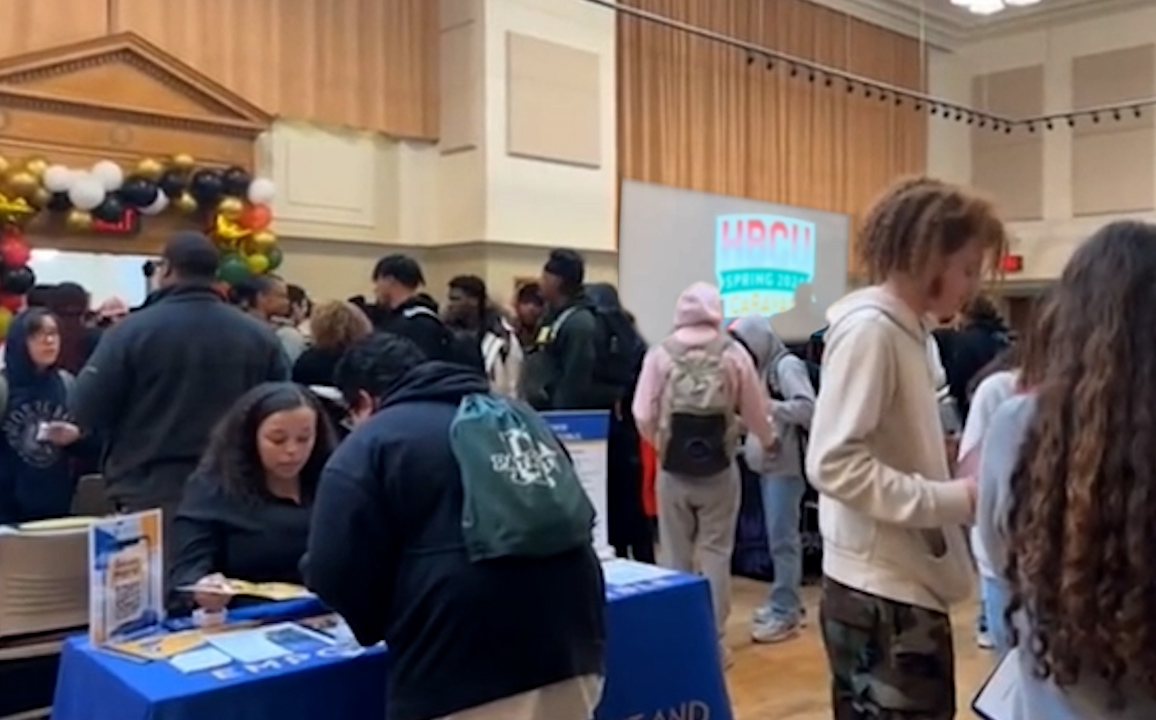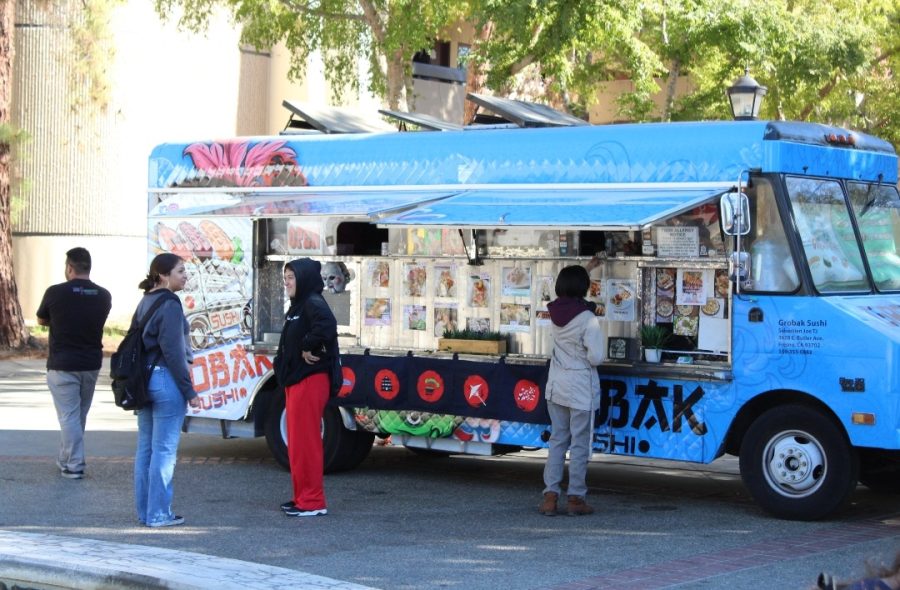Students gathered at the Fresno City College library last Friday to enjoy familiar readings all day long celebrating the American Library Association’s annual Banned Books Week.
Students and staff read in half hour blocks from books that all had the commonalities of being timeless literature and targets of censorship.
Dr. Jill Minar, professor of anthropology, kicked off the festival with a lovely passage from “A Wrinkle in Time.” Later, Bob Boyd, professor of philosophy, read from “Alice in Wonderland.”
The day was packed with great works of literature and executed in a manner that allowed on-the-go students the freedom to come and go as their schedules allowed.
Donna Chandler, FCC’s public service librarian who organized the event, presented a series of child picture books, including Maurice Sendak’s “Where the Wild Things Are.”
She spoke of how the book was challenged because the monsters were scary. “From what I hear, the monsters were actually patterned after his Brooklyn relatives,” she said.
What are banned books? The name is not literal, thanks to the perseverance of librarians and booksellers across the country to maintain the integrity of our first amendment rights in regard to literature.
The label “banned books” signifies that all of the featured books were targets of attempted banning/censorship last year. Maintaining open access to information is “the main torch of a library’s work,” said Chandler.
The process of banning a book is technically known as challenging a book.
It involves individual libraries, who receive a written request; usually a form issued by the library, that the book in question be removed from its shelves.
The form generally asks questions to make sure the person attempting to de-shelve the book actually read it and has a genuine problem with the book.
A common way librarians deal with challenges is to simply ask if the challenger would like to see another piece of literature on the shelf to “counter” it; thus expanding access to information rather than stifling it.
“It’s not necessarily the loss of the books, but the loss of the freedom that it implies,” said Chandler.
According to the ALA, Justin Richardson and Peter Parnell’s “And Tango Makes Three” was the most challenged book of 2006. In the book, a baby penguin’s mother dies, and it is raised by two male penguins.
The book is actually based on a true story, yet continues to be a primary target for library removal.
Reasons for challenging have varied, but offensive language, homosexuality, and simply being “unsuited to age-group” have been common themes.
An absent theme would be that of race, which used to always have a reserved seat among reasons why books were challenged.
Chandler spoke of the many challenges to “The Rabbit’s Wedding” years ago. The controversy stemmed from the stories’ marriage of a black and white rabbit.
Since 1982, the ALA has spearheaded this annual awareness campaign during the last week of September to help preserve open access to literature. “Free People Read Freely” has been the slogan.



